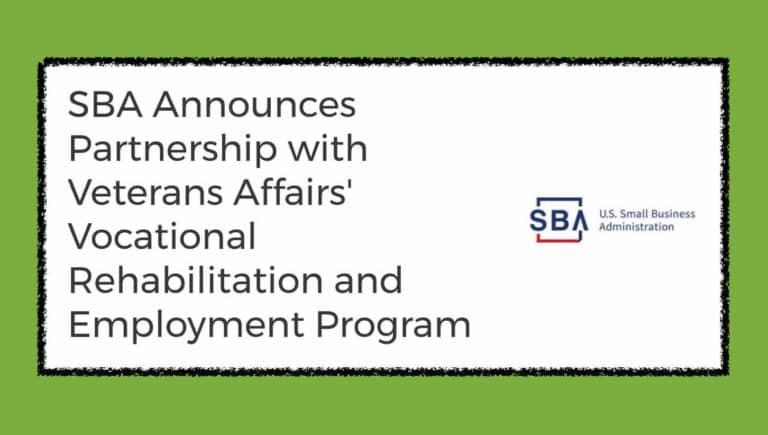Unlocking Veteran Readiness and Employment (VR&E) Benefits: Demystifying Your VR&E Application
I can’t sugarcoat it when it comes to VRE (formerly Vocational Rehabilitation and Employment or Chapter 31) eligibility. It is a phenomenal benefit that helps disabled veterans get back into a career and back to work. But without proper guidance, you may be on a wild goose chase for benefits.
Benjamin Krause is a VA-accredited attorney who has been fighting for veterans’ rights and benefits for over a decade. No doubt, his experience handling VRE cases makes him uniquely qualified to expose the opportunities and pitfalls in the system. Keep reading to learn the no-nonsense strategies and insider tips that could make the difference between claim approval and denial… Because in this complex system, knowing how to work the process is just as important as simply qualifying for the benefits you deserve.
We’re about to dive deep into what you need to know about eligibility, application strategies, and getting the training and benefits you need—no sugarcoating, just plain fact from someone who has been fighting these battles.
What is Veteran Readiness and Employment and Who Qualifies?
So, let’s put aside all the bureaucratic jargon and get down to business. Let’s talk about VRE. You know, Voc Rehab. In VA speak, Chapter 31.
This federal benefit helps ensure that veterans with service-connected disabilities are able to find and maintain “suitable employment.” What is suitable employment? In short, it is employment that is compatible with your particular abilities and does not aggravate your service-connected conditions.
There is one important thing that most veterans don’t realize: injured troops who are still on active duty do not have to wait. These service-members can start the application process for retraining benefits and services before completing the VA rating process. If you’re disabled, you don’t have to wait for the notoriously slow VA rating process to get certain benefits and services, including Veteran Readiness and Employment.
The key to getting those benefits is proving what the VA calls an employment handicap or, in many cases, what they call a serious employment handicap. Pay close attention to that last designation – it’s not just a “bureaucratic term for handicapped.” A serious employment handicap often comes with enhanced training and additional resources, making it absolutely critical for veterans to get this designation when appropriate.
How to Apply for VRE Benefits
Applying for VRE benefits begins with completing the proper paperwork. You can fill out the VR&E application one of two ways. Here’s how you can get started:
- Fill out VA Form 28-1900 or go to VA.gov to apply online.
- Submit the application form via fax or mail to the Janesville VA Evidence Intake Center if you did not use the online portal.
- After submission, you’ll typically receive follow-up instructions via email or text, including forms like the VA Form 28-1902w, which require detailed information about your employment goals and barriers.
Pro Tip: Even if you’re unsure of your exact goals, submit your application as soon as possible. Processing times can range from a few months to over a year in some regions, so starting early is crucial.
What to Expect After You Apply
After submitting your application for Veteran Readiness and Employment (VR&E) benefits, you can expect to hear back from the Department of Veterans Affairs (VA) within a few weeks or a few months.
Seems a bit wishy-washy, right? That is because it is. The program is understaffed and not keeping up with present timeliness expectations.
If your application is approved, meaning you are considered eligible for VR&E benefits, the next step is an appointment with a Vocational Rehabilitation Counselor (VRC) for a group orientation followed by an initial evaluation later in the day or scheduled for a later date.
The letter confirming you were deemed eligible for benefits should provide a date for the initial appointment for orientation. If you cannot make the time on the letter, be sure to request that your first appointment be rescheduled. Do this in writing through email or their electronic messaging system called EVA.
The first meeting is crucial as it sets the foundation for your rehabilitation plan, but it can take many months for VR&E to set up the appointment. If you are a no-show for the appointment, it may not look good on you as an applicant later.
During your initial evaluation, after the group orientation video, your VRC will assess your vocational impairment from your service-connected disabilities for an employment handicap and serious employment handicap. The counselor should also discuss your career aspirations.
This is supposed to be a collaborative process where you and your counselor will identify the best course of action to help you achieve your career goals.
Is it really collaborative?
We frequently see veterans wrongly denied after a counselor fails to fully and fairly engage with the veteran in anything that might be classified as a “collaborative process.”
Instead, many veterans run into a bully counselor or apathetic counselor who does not care what the veteran has to say about much of anything. While it is against VA regulations and policy to behave in this way toward a veteran, VA also lacks an accountability mechanism that properly addresses poor counselors.
The impact of a bad counselor can be catastrophic for a claim and irrevocably undermine your trust in the federal VA system. The impact should be evident because the VRC is the key person to develop the required evidence for your claim.
Your VRC will evaluate how your service-connected disabilities impact your ability to work and will tailor a plan that addresses these challenges. This personalized approach is supposed to ensure that the support you receive is aligned with your unique needs and aspirations.
Frequently, this does not happen, but it sounds good on paper.
Key Challenges and How to Overcome Them
The VRE process isn’t without its hurdles, as noted earlier.
From delays in application processing to disagreements over entitlement, veterans often face unnecessary roadblocks. Here are some common challenges and tips to address them:
- Long Wait Times: In areas like San Diego, processing can take over a year. Be persistent and follow up with your regional office regularly.
- Entitlement Disputes: If you’re denied due to the lack of an employment handicap, do not settle. Many veterans are wrongly denied, but you can contest the adverse decision using one of three decision review requests options to appeal. You can file a Formal Appeal, Supplemental Claim with new evidence or argument, or file a Higher-Level Review.
- Insufficient Training Approvals: Some offices might push for minimal training options like certifications or two-year degrees. Remember, VA is required to help you achieve the maximum benefit, not the bare minimum. Many offices improperly train their staff to push veterans toward the minimum benefit with false information or gaslighting. Do not fall for the tricks.
Remember: It’s essential to tell the VRC how your disabilities impact your ability to gain and maintain suitable employment. Providing detailed examples of how each of your disabilities impacts you in a working environment can strengthen your case significantly.
Pro Tip: Do not select a vocational goal (job type) that obviously aggravates your disabilities.
Rehabilitation Process
The rehabilitation process for VR&E participants is structured to provide comprehensive support at every stage. Here’s what you can expect if your counselor is amazing and your evidence requires minimum development time and energy (few veterans will experience this without hurdles):
- Initial Assessment: Your journey begins with an in-depth assessment conducted by your VRC. This evaluation will determine the extent of your employment handicap and help identify your career goals. The VRC will consider your skills, interests, and the impact of your service-connected disability.
- Rehabilitation Plan: Based on the initial assessment, your VRC will work with you to develop a personalized rehabilitation plan. This plan outlines your career objectives, the services you will receive, and the steps needed to achieve your goals. It’s a roadmap designed to guide you towards suitable employment. It is also a contract that is difficult to change later.
- Job Training and Education: Depending on your career goals, you may receive job training or education to develop the necessary skills. This could range from vocational training programs to higher education degrees, all aimed at enhancing your employability.
- Employment Assistance: Your VRC will provide various forms of employment assistance, including resume development, job seeking skills coaching, and job placement services. These resources are designed to help you navigate the job market and secure employment that aligns with your abilities and interests.
- Ongoing Support: The support doesn’t end once you start working. Your VRC will offer ongoing guidance and assistance to ensure you remain on track to achieve your career goals. This continuous support is vital for overcoming any new challenges that may arise. It will last up to two months if you secure suitable employment right away. It will last up to 18 months if more time is needed.
The above five steps are not typically accomplished smoothly. Many veterans do not have a seamless experience.
Services and Support for Veterans with Service-Connected Disabilities
The VR&E program offers various services and support to help veterans with service-connected disabilities achieve their career goals. Here’s a closer look at what’s available:
- Long-term Services: Whether you need vocational training or a college degree, VR&E can provide the necessary education and training to help you develop the skills required for your chosen career path. The majority of veterans receive academic training.
- Rapid Access to Employment: From resume development to job placement services, VR&E offers comprehensive employment assistance. This includes coaching on job seeking skills and providing resources to help you find and secure suitable employment.
- Reemployment: Veterans can request support to get help to return to their former job with the support of their employer to meet their needs.
- Independent Living Services: For veterans whose disabilities make daily living activities challenging, VR&E offers independent living services. These services are designed to help you live independently and improve your quality of life.
- Self-Employment: If you’re a veteran with a barrier to employment who wants to call your own shots, the Self-Employment track can help you start your own business with the help of Uncle Sam. This track is the most challenging to get approved.
Maximizing Your VRE Benefits
From undergraduate degrees to professional programs like law and medicine, VRE can fund extensive training—but only if you advocate for yourself effectively. Here’s how:
- Higher Education: If your career path requires graduate or doctoral training, emphasize how this aligns with your abilities and employment goals. A serious employment handicap designation often unlocks these opportunities. Additionally, the National Defense Authorization Act allows severely injured active-duty service members to receive benefits automatically without waiting for a disability rating.
- Business Support: Want to start a business? VRE can provide funding and resources, but you’ll need a solid business plan. Don’t worry—counselors are supposed to help you develop one.
- Technology Needs: VRE can cover essential tools like laptops or software. If your counselor lowballs the budget, provide justification for the necessary equipment.
While VRE funding limits typically start at $50,000 before requiring higher-level approval, demonstrating your specific needs can result in approvals for even higher-cost programs.
What to Do If You’re Denied
Denial isn’t the end of the road. Here are your options:
- Supplemental Claim: Provide additional evidence to support your case and request a review.
- Higher-Level Review: Request a more senior VA official to review your case.
- Formal Appeal: While appeals can take years, they’re an option for significant disputes.
Consider seeking legal representation if you run into repeated denials. As Krause notes, “Sometimes you need an attorney to help you navigate the system and ensure you’re receiving the benefits you’ve earned.”
Learn More: VA-Accredited Attorney Handling Denied VR&E Claims
Next Steps and Ongoing Support
Completing the VR&E program is a significant milestone, but the support doesn’t stop there. Here’s what you can expect in terms of ongoing assistance to help you maintain suitable employment:
- Follow-up Appointments: Regular follow-up appointments with your VRC will help ensure you are maintaining suitable employment. These check-ins are an opportunity to discuss any challenges you’re facing and to adjust your rehabilitation plan as needed.
- Ongoing Counseling: Continued counseling and guidance are available to help you navigate any issues that arise in your employment. This support is crucial for addressing new challenges and ensuring long-term success.
- Job Retention Services: To help you maintain your job, VR&E offers job retention services. This can include assistance with job accommodations and workplace modifications, ensuring your work environment is conducive to your needs.
- Career Advancement Services: As you progress in your career, VR&E can provide career advancement services. This includes support for professional development and assistance with career advancement opportunities, helping you to continue growing and achieving your professional goals.
By leveraging these resources, you can build a fulfilling career and maintain suitable employment, ensuring long-term success and stability.
FAQs from Veterans with Service Connected Disabilities
Q: Can I use VRE if I’ve exhausted my GI Bill?
A: Yes! Even if you’ve used all 36 months of your GI Bill, VRE can still provide funding, especially if you have a serious employment handicap.
Q: Will VRE cover education abroad?
A: It’s possible, but approvals for foreign programs can be challenging. Work closely with your counselor to present a strong case.
Q: Can VRE help with graduate programs?
A: Absolutely, especially if you’re pursuing fields like law, medicine, or counseling. Be sure to demonstrate how this training aligns with overcoming your employment handicap.
Final Thoughts: Advocate for Yourself
Applying for and navigating VRE benefits can feel overwhelming, but with persistence and the right strategies, you can secure the training and support you need. Remember, the goal of the program is to help you achieve suitable and meaningful employment. Don’t settle for less than what you deserve.
If you’ve faced challenges or have insights to share, we’d love to hear from you. Join the conversation in our Facebook group or drop a comment below. Together, we can ensure every veteran gets the benefits they’ve earned.






I saw one guy for mental health for about a year at VA and the guy found out I got caught growing pot. He flipped out and turned on me with his bullshit philosophy and then the relationship went down hill. Those people aren’t advocates. Turns out the guy was on pills for mental himself and belief in the supernatural which isn’t backed by proof or evidence…so that was the way he functioned and conjecture based diagnosis etc. Long story short, he got transferred to SC, moved into a crime ridden neighborhood so he could complain about the neighborhood. Literally saw the guy on the news complaining about the conditions in a neighborhood he just moved into like he didn’t have a choice. Complete asshole and idiot. He’s still working for VA after 10 years making probably a million dollars over ten years.
Since the judiciary isn’t policing the rogue, insubordinate, and incompetent Veterans Healthcare Administration, the military should go in there and subordinate them…even if it costs those people their civil rights for a short period of time. They’re getting paid and not carrying out the laws made by Congress so ..they have every right to go in there and bust some people up. All it takes is one mentally disordered wacko working for VA to rot everything from titis to toes.
You see that UHC guy that Luigi Mangione wasted? There’s nothing but people like that at VA and they deny way more care. People should know by now that American government is rotten and they are backed by unlimited legal resources and immunity. Justice doesn’t matter, what’s right doesn’t matter, only money and power matters. It’s not like that in Europe so it will take decades of sustained violence to make it that way.
Haiku:
Psychology department employees
Writing their own DSM-5
Their bullshit philosophy isn’t science
Their perspective is formed by nonsense
The medical doctors in there are usually great but their hands are tied by the admin psychos in their bunkers not approving care. Where is the Trump clown show when it comes to stuff like that huh? The people in there who aren’t medical doctors are tore up from the floor up. They make bogus claims, absurd assertions, write complete nonsense in people’s medical records which they call “notes” just so they can get away with unprofessional bullshit. The whole place is a shit show. It’s all a big joke to them. Worst thing Trump could do is leave it as it is with all those yo-yos in there playing games with people for a living. We need actual healthcare..
If you’re a veteran and you go to jail for any extended period of time, when you come out, you’re gonna be grilled about your life pre service and mental health problems in the family…so they can use that information to suggest your problems aren’t service related and perhaps they shouldn’t have to treat you. All that is done in private. They can shovel you out the door without anyone else in the system really figuring that out. They’re smart people… and if you’re smart… you’ll not put yourself in that situation to begin with. Worst of the worst in the psychology field perch in there with immunity and unlimited legal resources.
The VA budget over the last four or five years was well over a trillion dollars… still they deny care for service connected musculoskeletal conditions. At least Luigi Mangione got one surgery out of UHC. You’ll not get one from VHA, no denial of care letter, they’ll troll you right out of there at the lowest level possible and sweep it under the rug. And that is a human rights violation not to mention lawless behavior. The federal courts allow the lawlessness. Congress can do nothing about it at this point. Lotta dereliction of duty in our democracy today. Hopefully Trump wraps it all up AND hands out insurance cards… but he won’t because he’s a destructive chaos manufacturer. Otherwise we would be getting the insurance cards WHILE he’s firing the deadbeats out of the broken joke of a system.
Anyone notice no surgery for service connected spine conditions and no pain medication? You gotta rot away in pain for 20 years and THEN they’ll do the surgery. They won’t just do it now so you don’t go through that but eventually they’ll pay for it. Make sense? Also, pain medication is not available, only fentanyl off the streets. And if they find out you’re taking fentanyl, they’ll treat you like a criminal addict and hit you with even more degrading diagnosis.
They’ll call the police on you for fentanyl while they deny care for pain and give no pain medication. If you’re in a psychotic episode and hit a super citizen at VA, off to jail you go. The only justification, validity, and credibility that VA mental health has is keeping people out of jail and alive yet they call the cops on people and people commit suicide at astonishing levels under their care…so that system has no justification for existence other than a redistribution apparatus. It’s a failure and a crime against the taxpayer.